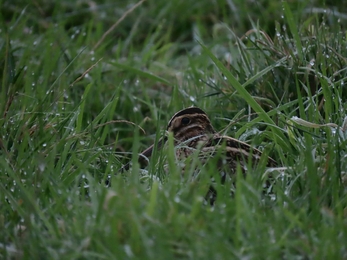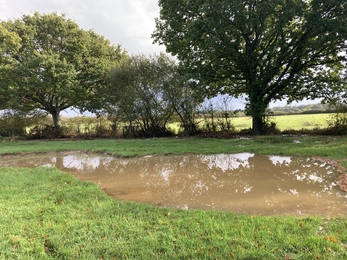Nutrient neutrality rules ensure that developments in designated areas such as the Poole Harbour catchment can be approved once suitable measures are in place to counteract an increase in pollution of our rivers from the new housing.
Nitrate pollution is caused by various factors including sewage systems, so waste water produced by new housing contributes to the general deterioration of water quality which is harmful to fish species, plant life and humans.
Brian Bleese, Dorset Wildlife Trust chief executive said: “Nutrient pollution, such as nitrates, is causing massive harm to Dorset rivers and to Poole Harbour. It is vital that we continue to implement nutrient neutrality schemes which provide cost-effective ways to unlock housebuilding while also mitigating the environmental impact of new developments – and those methods have the added benefit of helping people, communities, and nature too.”
“Our precious rivers and coastal areas are facing untenable levels of pollution from agriculture, industry, and domestic waste, with only 15% in good ecological status. We must have robust measures in place to start tackling this critical issue.
“Reports that the Government is considering removing or changing the nutrient neutrality requirement for new developments are very concerning and could seriously set back the delivery of schemes similar to Dorset Wildlife Trust’s Wild Woodbury initiative.”
The purchase of Dorset Wildlife Trust's 420-acre Wild Woodbury site near Bere Regis was supported by a grant from both Bournemouth Christchurch & Poole Council and Dorset Council, to mitigate the impacts of increases in nitrates due to new housing development in the Poole Harbour catchment. In the two years since we took ownership of the site, we have already seen huge increases in wildlife through allowing the land to recover from previous nutrient inputs.
Tony Juniper, Chair of Natural England recently tweeted, “Measures to avoid nutrient pollution getting worse must be a vital aspect of any serious attempt to meet environmental targets. The rules to do this are not unnecessary blocks on development, but essential safeguards for our depleted natural environment.”
Brian Bleese added, “Development comes at a significant cost to our natural environment. We need to ensure that this is balanced by effective mitigation measures. Waiting for the delivery of long-term promises of changes to agriculture policy or the installation of upgraded water treatment facilities is not an option, we all need to take action now if we are serious about helping nature to recover.”


